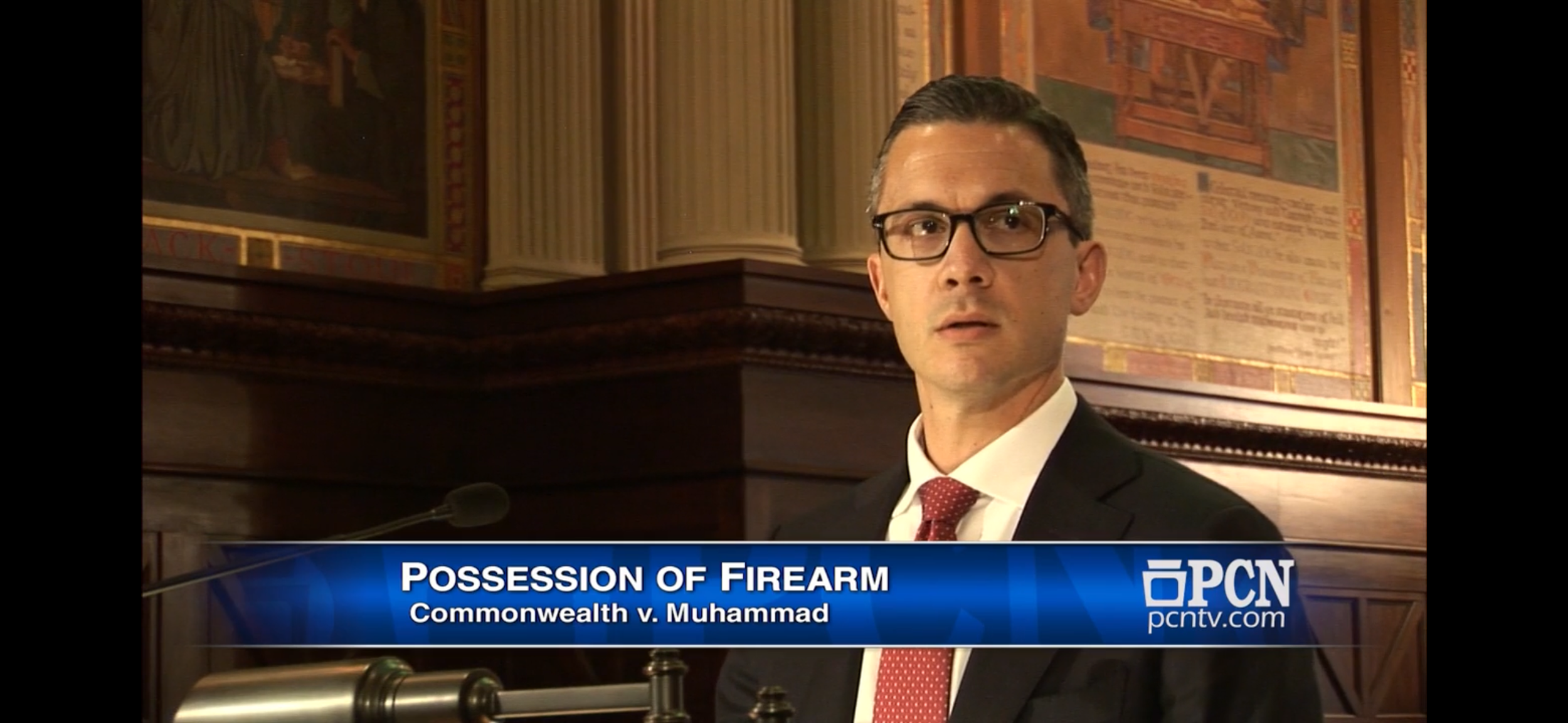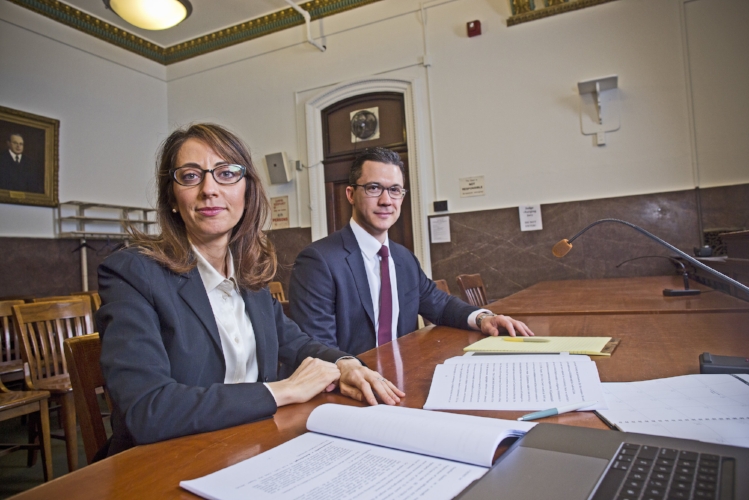
Philadelphia Criminal Defense Blog
PA Superior Court: A Defendant Can Conspire to Commit Second-Degree Murder
Philadelphia Criminal Defense Lawyer Zak T. Goldstein, Esquire
The Pennsylvania Superior Court has decided the case of Commonwealth v. Wellman, holding that conspiracy to commit second-degree murder is a cognizable offense under Pennsylvania law. The Court held both that the offense exists in Pennsylvania and that the evidence was sufficient to uphold the defendant’s conviction.
The Facts of Wellman
The case arose out of a violent robbery which occurred on October 5, 2019, in Philadelphia. The Commonwealth alleged that the defendant and his brother entered an apartment, brandishing a handgun and what appeared to be a rifle. They robbed several occupants of their wallets, phones, and valuables. When the decedent resisted, the defendant pressed a handgun to the decedent’s head and fatally shot him. Police later apprehended the brothers in a nearby alley. The police recovered stolen items, discarded clothing, and a revolver with gunshot residue in it.
The police arrested the defendant, and prosecutors charged him with second-degree murder, robbery, conspiracy, and firearms offenses. He went to trial, and the jury found him guilty. He received a mandatory life-without-parole sentence for the murder, as well as a consecutive five-to-ten year sentence for robbery.
The Superior Court Appeal
On appeal, the defendant’s attorney initially filed an Anders brief, which is a brief indicating that the attorney did not think the defendant had a single viable appeal issue. These should almost never be filed following a trial, especially in a murder case. Accordingly, the Superior Court rejected the Anders brief and directed the attorney to file a new brief for the appeal. The Superior Court had identified a potentially non-frivolous issue: whether the evidence was sufficient to convict the defendant of conspiracy to commit second-degree murder. In a new brief, the defendant argued that he and his brother only agreed to commit a robbery, not murder. The Commonwealth actually went further and argued in its brief that conspiracy to commit second-degree murder is not even a cognizable crime, meaning it does not exist. The Commonwealth did not move to vacate the substantive murder conviction, but it did argue that the Court should vacate the conspiracy conviction.
The Superior Court’s Ruling
The Superior Court rejected both positions:
Sufficiency of the Evidence: The Court held that the robbery agreement, carried out with firearms and escalating violence, supported the inference that the brothers entered into a conspiracy that encompassed second-degree murder. Even without an express plan to kill, the inherently dangerous felony and Wellman’s use of a firearm made the risk of death foreseeable.
Cognizability of the Offense: Relying on the Pennsylvania Supreme Court’s decision in Commonwealth v. Fisher, 80 A.3d 1186 (Pa. 2013), the Court concluded that conspiracy to commit second-degree murder is a legally valid offense. Just as one can conspire to commit third-degree murder or involuntary manslaughter, one can conspire to commit felony murder by agreeing to engage in conduct that carries a wanton disregard for life.
The Court therefore affirmed Wellman’s life sentence and rejected the Commonwealth’s somewhat unexpected argument to vacate the conviction.
Takeaway
This decision settles an open question in Pennsylvania law: conspiracy to commit second-degree murder is a cognizable offense. Defendants charged under this theory cannot avoid liability by arguing that felony murder is “unintentional.” If conspirators agree to commit a dangerous felony like armed robbery, they may be held liable not just for the robbery, but also for any resulting deaths. This is true even where no specific intent to kill is proven.
Facing criminal charges or appealing a criminal case in Pennsylvania?
Goldstein Mehta LLC Defense Attorneys
If you are facing criminal charges or under investigation by the police, we can help. We have successfully defended thousands of clients against criminal charges in courts throughout Pennsylvania and New Jersey. We have successfully obtained full acquittals and dismissals in cases involving charges such as Conspiracy, Aggravated Assault, Rape, Violations of the Uniform Firearms Act, and First-Degree Murder. We have also won criminal appeals and PCRAs in state and federal court, including the successful direct appeal of a first-degree murder conviction and the exoneration of a client who spent 33 years in prison for a murder he did not commit. Our award-winning Philadelphia criminal defense lawyers offer a free criminal defense strategy session to any potential client. Call 267-225-2545 to speak with an experienced and understanding defense attorney today.
Attorney Goldstein Wins Reversal of Dismissal of PCRA Petition on Prosecutorial Misconduct Claim
Criminal Defense Attorney Zak Goldstein
Philadelphia criminal defense attorney Zak T. Goldstein, Esquire, recently won the Superior Court appeal of the denial of a PCRA petition. In the case of Commonwealth v. S.D., the Superior Court reversed the denial of a PCRA petition and remanded the new case for an evidentiary hearing on whether trial counsel was ineffective in failing to object to improper arguments from the prosecutor during opening statements closing arguments.
S.D. was charged with burglary and related charges for an alleged home invasion burglary. During both opening statements and closing arguments, the prosecutor repeatedly urged the jury to imagine themselves in the victims’ shoes and think about how scary the incident must have been for them. S.D.’s trial attorney failed to object to this argument.
Pennsylvania appellate courts have long held that prosecutors may not make argument designed specifically to inflame the passions of the jury or designed solely to get the jury to convict based on sympathy for the victim. Prosecutors have lots of leeway in terms of being allowed to use oratorical flourish and in making argument, but there are limits. Indeed, courts have repeatedly held that urging jurors to imagine themselves as the victims of a crime is improper.
After S.D.’s appeals were unsuccessful, S.D. retained Attorney Goldstein to file a Post-Conviction Relief Act Petition (PCRA). Attorney Goldstein filed the petition, alleging that trial counsel provided the ineffective assistance of counsel in failing to object to the prosecutor’s improper argument. The trial court denied the petition, but the Superior Court reversed the denial of the petition on appeal. The Superior Court recognized that the case law generally prohibits prosecutors from making arguments similar to those at issue in this case. The Court therefore remanded the case for an evidentiary hearing on whether trial counsel had a strategic basis for failing to object. If the court finds that trial counsel did not have a good reason for failing to object, then S.D. may receive a new trial.
Facing criminal charges or appealing a criminal case in state or federal court in Pennsylvania? We can help.
Philadelphia Criminal Defense Lawyer Zak T. Goldstein, Esquire
If you are facing criminal charges or under investigation by the police, we can help. We have successfully defended thousands of clients against criminal charges in courts throughout Pennsylvania and New Jersey. We have successfully obtained full acquittals in cases involving charges such as Conspiracy, Aggravated Assault, Rape, and Murder. We have also won criminal appeals and PCRAs in state and federal court, including the exoneration of a client who spent 33 years in prison for a murder he did not commit. Our award-winning Philadelphia criminal defense lawyers offer a free criminal defense strategy session to any potential client. Call 267-225-2545 to speak with an experienced and understanding defense attorney today.
Withdrawing a Guilty Plea in Pennsylvania
I pleaded guilty, and I think it was a mistake. Can I withdraw a guilty plea?
Yes, in some cases it is possible to withdraw a guilty plea and go to trial. However, there are strict time limits for when motions to withdraw guilty pleas must be filed, and the motions are often difficult to win. If you recently pleaded guilty and feel that you may have made a mistake, you should contact one of our defense attorneys at 267-225-2545 immediately to discuss the merits of withdrawing your plea and the likelihood of success. If you wait too long, you could waive the right to challenge your plea forever.
How do I withdraw a guilty plea?
There are three ways that a guilty plea could be withdrawn. First, if the sentencing has not yet occurred, then the defendant may file a written pre-sentence motion to withdraw the guilty plea. Second, if the sentencing has already occurred, then the defendant has ten days from the date of sentencing to file a post-sentence motion asking the court to permit the defendant to withdraw the guilty plea. Finally, in rare cases, it may be possible to ask the judge for a new trial even after a guilty plea by filing a Post-Conviction Relief Act Petition. A PCRA Petition must be filed within one year from when the sentence became final. A sentence becomes final on the day of sentencing unless there is an appeal. Post-sentence motions and PCRA Petitions challenging guilty pleas are difficult to win.
Does the judge have to let me withdraw the plea?
Demetra Mehta, Esq. - Criminal Appeals Attorney
The judge is never required to allow a defendant to withdraw a plea. Instead, the judge must evaluate the allegations in the written motion and determine whether the interests of justice require that the defendant be allowed to withdraw a plea and proceed to trial. The exact standard which a judge will apply depends on the procedural posture of the case. Pre-sentence guilty pleas are typically easier to undo than a post-sentence guilty plea.
As a general rule, pre-sentence guilty pleas are the easiest to undo and motions to withdraw them are often granted. However, the right to withdraw a plea pre-sentencing is not absolute. in Commonweatlh v. Carrasquillo, the Pennsylvania Supreme Court re-affirmed that the trial court is imbued with the discretion to deny a defendant permission to withdraw a guilty plea, whether that request is tendered before or after sentencing. The Supreme Court suggested that a pre-sentence motion should typically be granted, but it reiterated that there is no absolute right to withdraw a guilty plea. Instead, trial courts have discretion in determining whether a withdrawal request will be granted; such discretion is to be administered liberally in favor of the accused; and any demonstration by a defendant of a fair-and-just reason will suffice to support a grant, unless withdrawal would work substantial prejudice to the Commonwealth.
Prior to Carrasquillo, a defendant was entitled to pre-sentence withdrawal of a guilty plea simply upon a bare assertion of innocence. Now, a defendant may be required to demonstrate that the claim of innocence is plausible in order for it to be a fair and just reason for withdrawal of a plea. Thus, in the recent Superior Court case of Commonwealth v. Baez, the Pennsylvania Superior Court upheld the trial court's denial of a pre-sentence motion to withdraw a guilty plea where the defendant had picked a jury, heard from a number of witnesses, and then decided to plead guilty to various sexual offenses pursuant to negotiations with the prosecution. The Baez court concluded that the Commonwealth would suffer prejudice because child witnesses had already been required to testify and that the defendant had not provided a plausible claim of innocence.
Zak T. Goldstein, Esq. - Philadelphia Criminal Appeals Lawyer
Pre-sentence motions are no longer guaranteed, but they are often granted. Post-sentence motions, however, are much more difficult to win. Nonetheless, they may still be granted in some cases. Post-sentence motions for withdrawal are subject to higher scrutiny because courts strive to discourage entry of guilty pleas as sentence-testing devices. Instead, a defendant must demonstrate that manifest injustice would result if the court were to deny his post-sentence motion to withdraw a guilty plea. This is a harder claim to prove, and it will typically require more than simply asserting the defendant's innocence. Instead, the defense would likely be required to show a compelling case for innocence or that some new evidence or witnesses have come forward since the plea. The post-sentence motion to withdraw a guilty plea must be filed within ten days of the sentence.
Finally, in rare cases, it may be possible to attack a conviction through the Post-Conviction Relief Act Petition by filing a PCRA Petition within one year of sentencing or the conclusion of direct appeals, whichever is later. If the defendant can show that the plea was the result of ineffectiveness of counsel, that after-discovered, exculpatory evidence would have changed the defendant's mind about pleading guilty, or some change in constitutional law that would have provided a defense, it may be possible to challenge a guilty plea by filing a PCRA. Again, the time limits are strict, and if motions are not filed on time, then the right to attack the conviction could be lost forever.
What happens if I am allowed to withdraw the guilty plea?
If the judge grants the motion to withdraw the plea, then your case will proceed as if the plea was never entered. This means that the parties are free to continue plea negotiations in the hopes of reaching a better deal. The parties may also litigate motions like pre-trial motions to suppress and then proceed to trial. Most importantly, the fact that the defendant pleaded guilty at one point during the case and was permitted to withdraw the plea is not admissible against the defendant at trial. The Rules of Evidence specifically prohibit introducing evidence relating to plea negotiations and in-court plea proceedings. This means that the fact that there was at one point a guilty plea cannot be used against the defendant to show guilt.
Philadelphia Criminal Defense Lawyers for Post-Sentence Motions, Criminal Appeals, and Post-Conviction Relief Act Petitions
Goldstein Mehta LLC - Philadelphia Criminal Defense Attorneys
If you recently pleaded guilty and believe that you made a mistake, we may be able to help. We have successfully helped clients reverse convictions and pleas through the use of post-sentence motions, appeals, and Post-Conviction Relief Act Petitions. It is important to remember that strict deadlines apply when attempting to undo a guilty plea. We offer a free criminal defense strategy session with one of our experienced and understanding defense attorneys to every potential client. Call 267-225-2545 to speak with an award-winning Philadelphia Criminal Defense Lawyer today.










